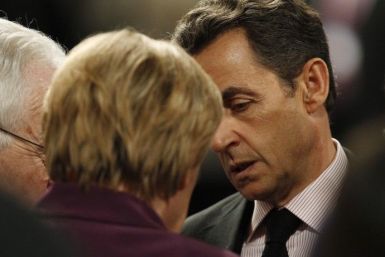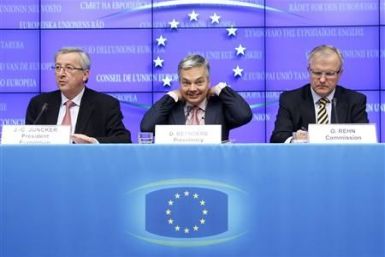France and Germany, the two leading countries of the euro zone, may have intentionally engineered a competitive currency devaluation by pushing private investors to share the burden of future sovereign bailouts.
Spot Gold touched a near 3-week high for Dollar investors above $1396 per ounce in London trade on Wednesday, but slipped back from new record highs in Euros and Sterling as the US currency dipped on the forex market.
Despite the recent frenetic declarations by Prime Minister José Luis Rodríguez Zapatero that Spain does not need a bailout, the bond markets strongly disagree with him as traders continue to unload Spanish (as well as Portuguese and Italian) bonds, driving up the financing costs for the nation’s lenders to all-time highs.
The precious metals were mixed in November, with silver outshining the rest with a 13.6 percent jump, followed by palladium which rose 7.75 percent. Gold managed to end the month with marginal gains of 1.87 percent while platinum fell 2.7 percent from its end-October level.
The force of political will binding together a seemingly crumbling euro zone is still strong, but the imperatives of domestic economic realignments could force members to an exit option, analysts have said; and the road out of the bloc doesn’t exactly look daunting.
U.S. stocks are slightly down in afternoon trading as investors weigh better-than-expected U.S. economic data against continued sovereign debt woes from Europe.
While it was high public debt that did Greece in and a collapsed banking sector that sunk Ireland, Portugal's problems are low economic growth prospects and high private sector debt.
Gold touched a 1-week high for Dollar investors but broke new all-time records for Euro and Sterling buyers on Tuesday morning, as industrial commodities slipped and the US currency rose against all competitors bar the Japanese Yen.
US stocks declined in early trade on Tuesday as renewed concerns about European sovereign debt crisis weighed on sentiment.
Futures on major U.S. stock indices point to a lower opening on Tuesday as renewed concerns about European sovereign debt crisis weighed on sentiment.
After the financial markets gave thumbs down to the Irish bailout deal and the common currency slumped further, the focus is converging on the eurozone itself, rather than on the indebted individual members of the bloc.
USD/JPY tends to fall further as the session grows to Europe and given the market mood to stay prepared for more bad news from Portugal or Spain, likely in the coming days, the pair may only have a brief stop near 83.75 (S1), the 61.8 percent Fibonacci from late September levels. It could hold that level for the day.
Stocks fell, but finished significantly above intra-day lows, as the market recovered somewhat from early losses triggered by renewed fears that the euro zone debt crisis could spread beyond Ireland to Portugal and Spain.
Futures on major U.S. indices point to flat opening on Monday as the European Union’s 85 billion euro ($113 billion) financial assistance package for Ireland failed to boost investor sentiment.
Stocks tumbled in a holiday-shortened session on worries over threats of war by North Korea and pervasive fears that the euro zone sovereign debt crisis may spread to Spain and Portugal. Apparently, traders saw little solace in what appears to be shaping up as a strong Black Friday on the retail front.
US stocks declined in early trade on Friday as fresh concerns over European debt crisis weighed on sentiment.
Precious metals and euro dropped on Friday as European periphery worries intensified, helping safe-haven interest into the US dollar. EUR/USD touched a fresh 2-month low.
Germany's argument for a policy to make private investors pick up part of the bill for any future bailouts won support from France as more European countries seem to require financial aid.
Sovereign debt crises in peripheral Europe threaten to bring down the overall euro zone economy because European banks are heavily expose those debt.
Stocks tumbled on heightened geopolitical tensions in Korea and rising fears about the spread of euro zone debt crisis. Minutes from the last FOMC meeting which revealed disagreements among policymakers over the efficacy of the second round of quantitative easing did not help market sentiment either.
The Irish government is busy finalizing an austerity plan that is expected to save about 15 billion euros, even as the opposition called for early elections in January.
An unwilling Ireland finally agreed to a bailout to help prolong eurozone's jolly ride to doom, and analysts see a good chance of Portugal following suit in the coming months. However, the bigger question is if Spain, eurozone's fourth largest economy, is well insulated against a Greece- and Ireland-style crisis.





































